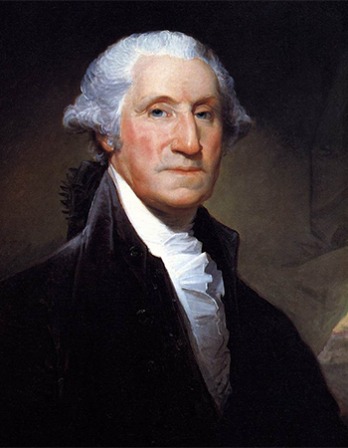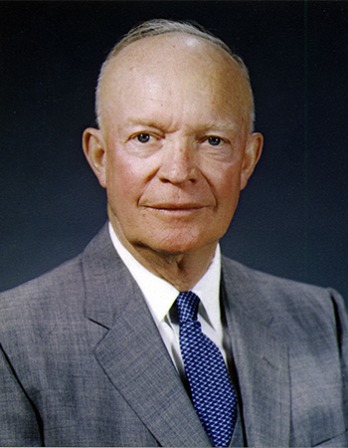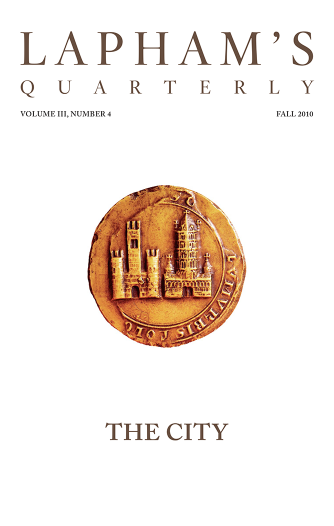The period of a [Persian] boy’s education is between the ages of five and twenty, and he is taught three things only: to ride, to use the bow, and to speak the truth.
—Herodotus, 440 BCAcademic Virtue
What is the job of higher education and what is it that those who teach in colleges and universities are trained and paid to do?
By Stanley Fish

Saint Jerome in His Study, by Antonello da Messina, c. 1475. National Gallery, London, England.
Not long ago, there was a time when I was responsible for a college with close to thirty departments and units, a budget of between fifty and fifty-five million dollars, four hundred tenure-track faculty members, seven hundred staff, ten thousand undergraduate students, two thousand graduate students, and seventeen buildings. On any given day, I had to deal with disciplinary proceedings, tenure and promotion cases, faculty searches, chair searches, enrollment problems, fundraising, community outreach, alumni relations, public relations, curriculum reform, counteroffers, technology failures, space allocation, information systems, chair meetings, advisory committee meetings, deans council meetings, meetings with the provost, student complaints, faculty complaints, parent complaints, and taxpayer complaints. Office hours were 8:30 a.m. to whenever and often extended into the evenings and weekends. Vacations were few and far between. The pressure never relaxed.
When I left the job after slightly more than five years, I felt that I had all the time (well, not quite all) in the world at my disposal, and for awhile, spent it by trying to improve everyone I met, whether or not those I ministered to welcomed my efforts. Although I was no longer a dean, I couldn’t shake the habit of being at the office every day, all day. Because I had nothing particular to do, I roamed the halls looking for things that were wrong, and I found them.
Stray pieces of furniture you couldn’t give away sat (or sprawled) in front of an office door. I stuck my head in and informed the occupant (why did he or she listen to me?) that the offending items must be removed by the end of the day. Continuing down the halls, I found the panels separating two elevators festooned with announcements of lectures that took place two years ago. I proceeded to rip the leaflets down. Halfway through I decided that no one should be posting anything there anyway; so I removed every announcement, no matter how current, and for good measure, I tore away the surface the announcements adhered to and threw all the thumbtacks and pushpins into the trash.
But then it was time to go to class (I was still teaching), where, in an enclosed space, my students received the full force of my reforming zeal. I told them that I hadn’t the slightest interest in whatever opinions they might have and didn’t want to hear any. I told them that while they may have been taught that the purpose of writing is to express oneself, the selves they had were not worth expressing, and that it would be good if they actually learned something. I told them that on the basis of their performance so far they should sue their previous teachers for malpractice. I told them that anyone who says, “I know it, but I can’t explain it,” would flunk the course.
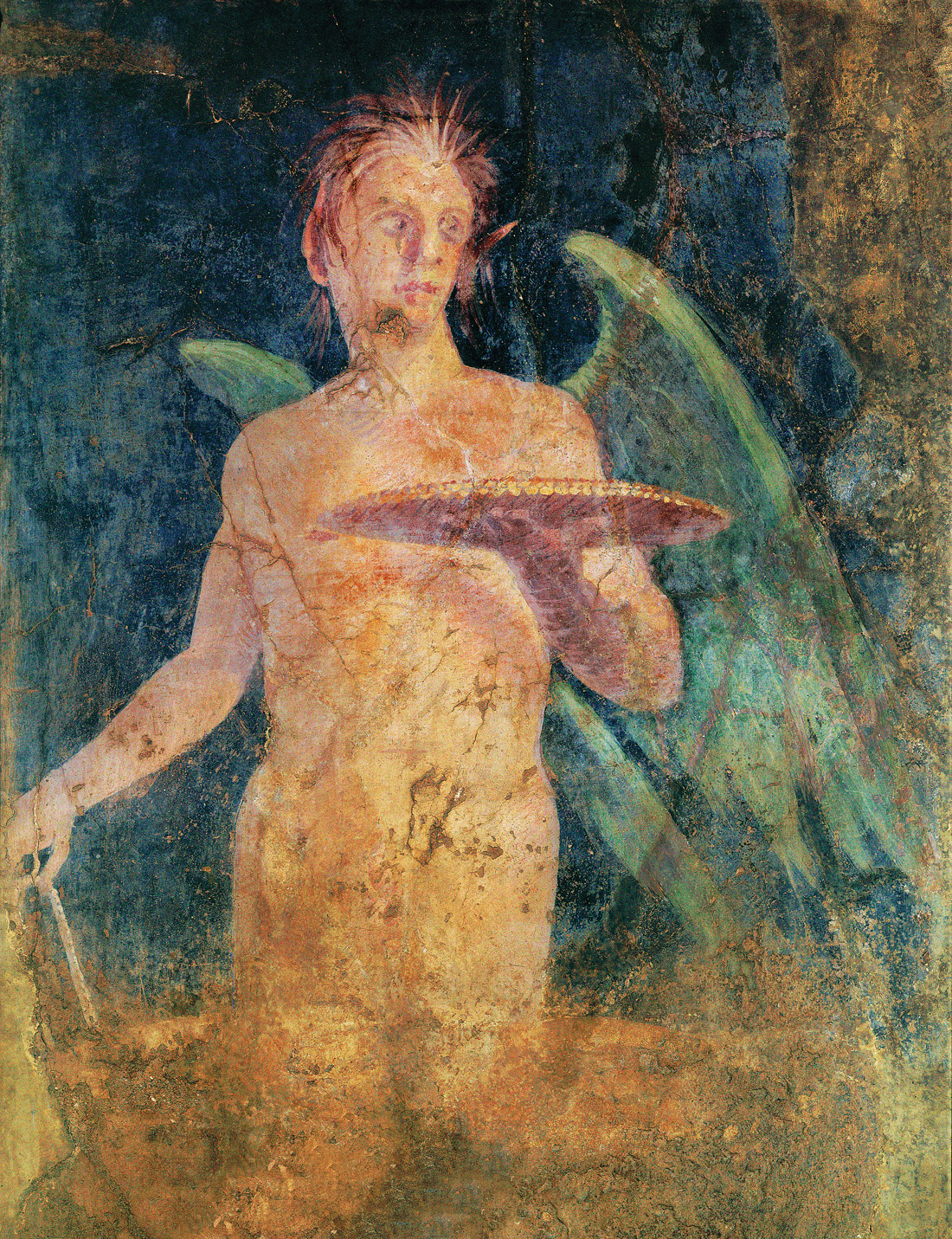
Winged Genius, fresco in Boscoreale, Italy, first century BC. Louvre Museum, Paris, France.
After an hour and a half they escaped, except for one of them, who came to my office for further instruction. Although it was the end of the third week, she was still not quite sure about the structure of the basic English sentence. I took her through the subject and predicate slots and she seemed to understand who or what an actor is and the relationship of the actor to the action performed, but she couldn’t quite get the concept of the object of the action.
We were working with a sentence she had composed, “I threw the book into the garbage.” I asked her, “In that sentence what is the relationship between ‘threw’ and ‘book’?” She didn’t know. I tried again: “What is the impact on the object of the action?” She didn’t understand the question.
I decided that an illustration might do the trick, so I picked up a book on my desk and threw it. It hit a shelf of books a few feet away. She said nothing for a few seconds and then asked in a voice calmer than mine would have been, “Can I drop this course?” “Yes,” I answered (hoping to escape prosecution), and she left—the one person in the entire week who managed to get away.
What is this all about? I wondered. What’s driving me to do these things? I got part of the answer by looking up obsessive-compulsive disorder on the Internet and running down the list of symptoms. (Checking to see whether you have OCD is a form of OCD.) I found the following matches: fear of dirt; a need to have things just so; preoccupation with rules and schedules; rigidity; inflexibility; concern with order and symmetry; and saving containers when they are no longer needed. A perfect score.
And then it occurred to me that those are the very characteristics that make a dean effective: an obsessive need “to have things just so,” a need to have things that are not right put right.
What could I do aside from harassing perfectly innocent people who would have had every right to have me committed? Write. Although I was no longer in charge of a liberal arts college, I could satisfy my need to put the world in order by telling anyone who would listen how it should be done.
The first job, I decided, was to define the task. No serious reflection about an activity can get off the ground until the activity is characterized in a way that distinguishes it from all other activities.
It is when academics either don’t know or have forgotten exactly what it is they are supposed to do that trouble begins, and criticisms of the academic enterprise multiply. These days, everyone, whether speaking from the left or the right, says the same thing—colleges and universities are in a sorry state, and ideology is the problem. One group finds ideology in the efforts of activists like David Horowitz, who wishes to monitor and alter the political make-up of the faculty, especially in the humanities and social sciences; while the other group finds ideology in the inability or unwillingness (these are two different arguments) of liberal faculty members to refrain from imposing their political views on students.
There’s a lot of huffing and puffing on either side, and while I’m not writing to say, “A plague on both your houses,” I am writing with the intention of carefully parsing the terms central to the controversy. Not because I hope to solve problems but because I hope to dissolve them, to suggest that the problems pretty much go away when you understand and act on a simple imperative—“Do your job”—which comes along with two corollary imperatives—“Don’t do somebody else’s job,” and, “Don’t let someone else do your job.”
So let us begin with a simple question. What exactly is the job of higher education and what is it that those who teach in colleges and universities are trained and paid to do?
A faculty committee report submitted long ago to the president of the University of Chicago declares that the university exists “only for the limited... purposes of teaching and research” and reasons that “since the university is a community only for those limited and distinctive purposes, it is a community which cannot take collective action on the issues of the day without endangering the conditions for its existence and effectiveness.” Of course it can and should take collective (and individual) action on those issues relevant to the educational mission—the integrity of scholarship, the evil of plagiarism, and the value of a liberal education. But neither the university as a collective nor its faculty as individuals should advocate personal, political, moral, or any other kind of views except academic views.
The job of someone who teaches in a college or a university is to introduce students to bodies of knowledge and traditions of inquiry they didn’t know much about before, and equip those same students with the analytical skills that will enable them to move confidently within those traditions and to engage in independent research should they choose to do so.
Job performance should be assessed on the basis of academic virtue, not virtue in general. Teachers should show up for their classes, prepare lesson plans, teach what has been advertised, be current in the literature of the field, promptly correct assignments and papers, hold regular office hours, and give academic (not political or moral) advice. Researchers should not falsify their credentials, or make things up, or fudge the evidence, or ignore data that tells against their preferred conclusions. Those who publish should acknowledge predecessors and contributors, provide citations to their sources, and strive always to give an accurate account of the materials they present.
That’s it, there’s nothing else, and nothing more. But this is no small list of professional obligations, and faculty members who are faithful to its imperatives will have little time to look around for causes and agendas to champion.
Some activists on both the left and the right argue that the entire university should be a free-speech zone, one large Hyde Park Corner, for after all, isn’t the university primarily a place for the unfettered expression of ideas? The answer is no. The university is primarily a place for teaching and research. The unfettered expression of ideas is a cornerstone of liberal democracy; it is a prime political value. It is not, however, an academic value, and if we come to regard it as our primary responsibility, we will default on the responsibilities assigned us and come to be what no one pays us to be—political agents engaged in political advocacy.
The only advocacy that should go on in the classroom is the advocacy of what James Bernard Murphy has identified as the intellectual virtues: “thoroughness, perseverance, intellectual honesty,” all components of the cardinal academic virtue of being “conscientious in the pursuit of truth.” A recent Harris Poll revealed that in the public’s eye teachers are among the professionals most likely to tell the truth; and this means, I think, that telling the truth is what the public expects us to be doing. If you’re not in the pursuit-of-truth business, you should not be in the university.
From this narrow specification of professional competence follow both obligations and prohibitions. The obligations are the usual pedagogical ones—setting up a course, preparing a syllabus, devising exams, assigning papers or experiments, giving feedback, holding office hours. The prohibitions are that an instructor should do neither less nor more.
Doing less would mean not showing up to class or showing up unprepared, not being alert to the newest approaches and models in the field, and failing to give back papers or to comment on them in helpful ways. Doing more would be to take on tasks that belong properly to other agents—to preachers, political leaders, therapists, and gurus. Agendas imported into the classroom from foreign venues do not enrich the pedagogical task, but overwhelm it and erode its constitutive distinctiveness. Once you start preaching or engaging your students in discussions designed to produce action in the world, you are surely doing something, but it is not academic, even if you give it that name.
The academic enterprise excludes no topic from its purview, but it regards any and every topic as a basis for analysis rather than as a stimulus to some moral, political, or existential commitment. Not to practice politics but to study it; not to proselytize for or against religious doctrines but to describe them; not to affirm or reject affirmative action but to explore its history and lay out the arguments that have been made for and against it.
If every college or university instructor were to hew to this discipline—were to do his or her job and refrain from doing jobs that belong appropriately to others—those who want to do our jobs for us would have no traction or point of polemical entry because politics, religion, or ethics would enter the classroom only as objects of analysis and not as candidates for approval or rejection. The culture wars, at least in the classroom, would be over. There would still be a basis for argument and correction. You could still say, “I don’t think your account is quite right for the following reasons.” But the reasons would belong to the canons of argument and evidence and not to any political, religious, or ethical agenda.
The name I give to this academic categorical imperative is “academicizing.” To academicize an issue is to detach it from those contexts where it poses a choice of what to do or how to live—shall I join the priesthood or join the army?—and insert it into an academic context, where it invites a certain kind of interrogation. What is its history? Why has it been thought significant? What are the prevailing answers to the questions it raises? Where do those answers come from? The more these and related questions are posed, the less students will feel the urgency to bear personal witness in one direction or another.
Some faculty members have forgotten (or never knew) what their job is and spend time trying to form their students’ character or turn them into exemplary citizens. I can’t speak for every academic, but I am not trained to do these things. Teachers teach materials and confer skills, and therefore don’t or shouldn’t do a lot of other things—like produce active citizens, inculcate the virtue of tolerance, redress injustices, and bring about political change. Of course, a teacher might produce some of these effects—or their opposites—along the way, but they will be, or should be, contingent and not what is aimed at. The question that administrators often ask, “What practices provide students with the knowledge and commitments to be socially responsible citizens?” is not a bad question, but the answers to it should not be the content of a college or university course. Once we cross the line that separates academic work from these other kinds, we are guilty both of practicing without a license and of defaulting on our professional responsibilities.
Of course, professors have the right to say what they like as citizens (subject to the usual restrictions on libel, treason, and incitements to violence), but in their professional capacities the freedom they might claim is defined and limited by the nature of the task they are performing. My so-called free-speech rights will be very different depending, for example, on whether I am a fan at a baseball game or a nurse in an operating room. In the first context, my free-speech rights are pretty broad; I can yell any number of things, even abusive, profane things, without being silenced, or arrested, or thrown out of the stadium. In the context of the operating room, however, my free-speech rights barely exist at all; if I decide, in the middle of a procedure, to advocate for a higher salary or better working conditions for nurses, I will have no First Amendment defense when I am hauled out of the room and later fired. The reason that I would have been fired is not because of the content of what I said, but because my words, whatever their content, were uttered in a setting that rendered them inappropriate and even dangerous.
Academic situations fall somewhere in between the baseball stadium and the medical-operating theater. In the context of the academy, where free speech is generally highly valued, you will have more or less free-speech rights depending on what you’re doing and where you’re doing it. If I am a student, and I begin to say something, and the teacher cuts me off and says that my point is beside the point he or she wishes to pursue, I have no free-speech recourse. On the other side, as an instructor I can conduct my class in any manner I like—lecture, discussion, group presentations—and I can assign whatever readings I judge to be relevant to the course’s topic. Those are pedagogical choices, and I cannot be penalized for making them.
But if I harass students, or call them names, or make fun of their ethnicity, or if I use class time to rehearse my personal political views or attempt to win students over to them, I might well find myself in a disciplinary hearing, either because I am abusing my pedagogical authority or because I am turning the scene of instruction into a scene of indoctrination. What you are free to say in some venues you are not free to say in all venues, and your lack of freedom is not a First Amendment matter; it is a matter, rather, of the appropriateness of certain kinds of speech relative to certain contexts of employment or social interaction.
Of course, there’s no shortage of people who will politicize the academy and use it as they see fit. The corporate world looks to the university for its workforce. Parents want the university to pick up the baton they may have dropped. Students demand that the university support the political cause of the moment. Conservatives believe that the university should refurbish and preserve the traditions of the past. Liberals and progressives would like to see those same traditions dismantled and replaced by what they take to be better ones. Alumni wonder why the athletics teams aren’t winning more. Politicians and trustees wonder why the professors aren’t teaching more. Whether it is state legislators who want a say in hiring and course content, or donors who want to tell colleges how to spend the funds they provide, or parents who are disturbed when Dick and Jane bring home books about cross-dressing and gender change, or corporations that want new departments opened and others closed, or activist faculty who urge the administration to declare a position on the war in Iraq, there is no end of interests intent on deflecting the university from its search for truth and setting it on another path.
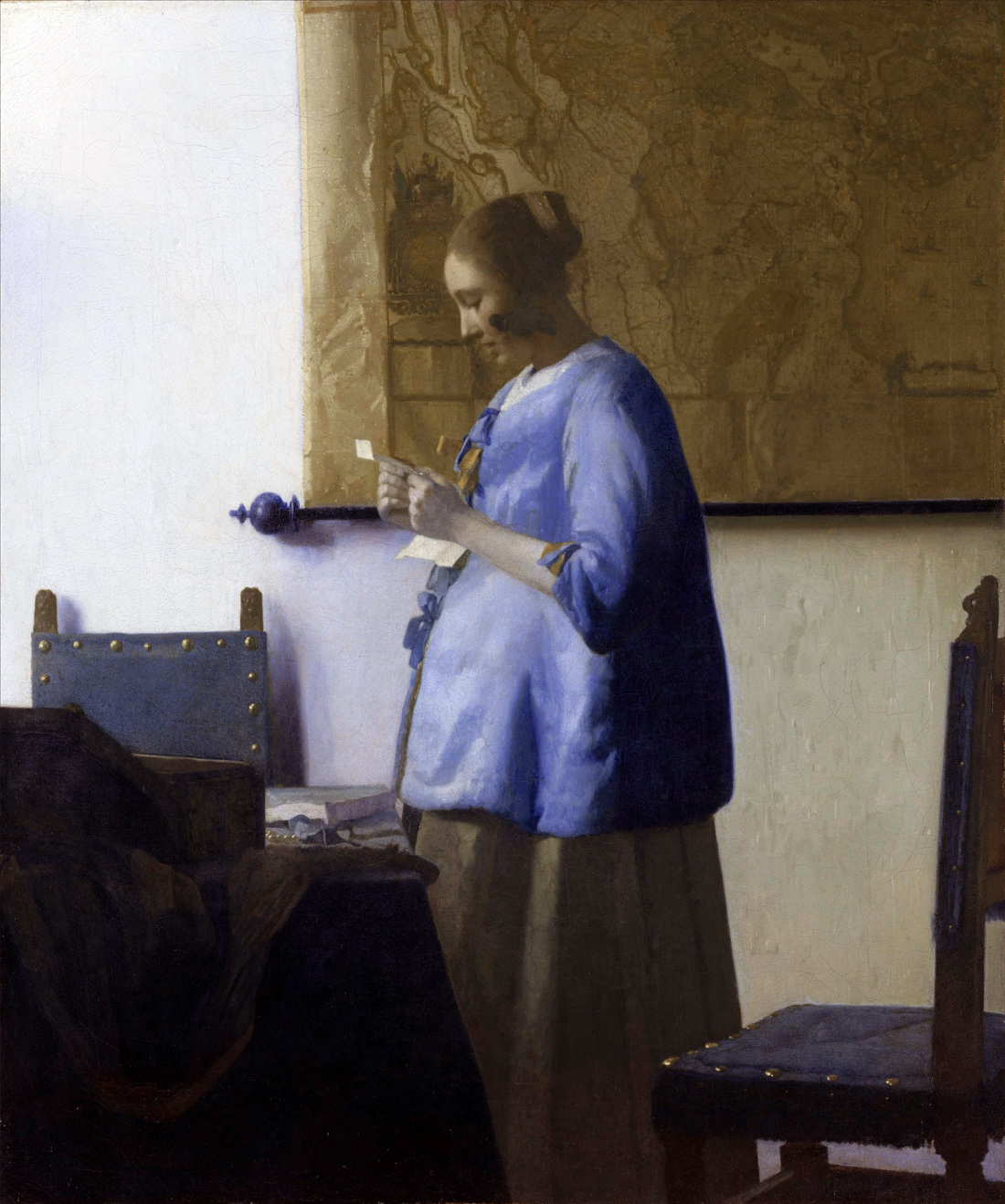
Woman in Blue Reading a Letter, by Jan Vermeer, c. 1662–1665. Rijksmuseum, Amsterdam, Netherlands.
Each of these lobbies has its point, but it is not the university’s point, which is to produce and disseminate (through teaching and publication) academic knowledge and to train those who will take up that task in the future. But can the university defend the autonomy it claims (or should claim) from public pressures? Is that claim even coherent? The philosopher Mark C. Taylor would say no. In a key sentence in the final chapter of his book The Moment of Complexity, Taylor declares that “the university is not autonomous but is a thoroughly parasitic institution, which continuously depends on the generosity of the host so many academics claim to reject.” He continues, “The critical activities of the humanities, arts, and sciences are only possible if they are supported by the very economic interests their criticism so often calls into question.”
As a description of the university’s inevitable involvement with, and dependence on, the forces and investments of the larger society, this seems to me exactly right. But the prescriptive conclusion that Taylor draws from this description seems to me to be exactly wrong: let’s stop pretending, he says, that we can operate in a splendid (but fictional) isolation from everything that enables us; let’s accept the fact that we are in, and of, the market, and “find new ways to turn market forces to our [own] advantage”; let’s go beyond the kind of critical analysis that does little more than “promote organizations and institutions whose obsolescence is undeniable.”
But if we are worried about obsolescence and the loss of relevance, the surest way to court both is to become so attuned to the interests and investments of other enterprises—the market, global politics, the information revolution—that we are finally indistinguishable from them. If there is nothing that sets us apart, if there is nothing distinctive about our task or the criteria for accomplishing it, if there is nothing that marks our work as ours and not everyone’s, there will be no particular reason to support us by giving us a room (or a franchise) of our own.
The professional obligation, as I define it, is moral because it holds faculty members to the particular morality of the institution, the morality that comes along with its immanent rationality, which is the rationality of truth seeking, to which one cannot be faithful if one does not “condemn cheating, academic fraud, and plagiarism”—all actions “antithetical to the search for truth.”
To be sure, that is not the whole of morality—there are legions of moral issues left unaddressed—but it is, or should be, the whole of academic morality. The fact that moral concerns turn up in the texts students study doesn’t mean that what the students are learning about is morality. They are learning about the ways in which poets, philosophers, and political theorists structure their inquiries and reflections. Those inquiries and reflections will often begin and end with moral questions, but what makes those authors worth studying is not the answers they happen to give to those questions—you can find Plato and William James compelling without either affirming or rejecting the morality they seem to be urging—but the verbal, architectonic, or argumentative skills they display in the course of implementing the intention to write a poem, a piece of philosophy, or a meditation on the nature of government.
The “genuine inquiry” in which students are (or should be) engaged is not an inquiry about what kind of person they should be but an inquiry about what kind of person Plato or Thomas Hobbes or John Rawls or John Milton thought they should be, and for what reasons, and with what poetic or philosophical force. The exam question is not, “If you were to find yourself in such and such a situation, what should you do?” The exam question is, “If you were to find yourself in such and such a situation, what would Plato, Hobbes, Rawls, and Kant tell you to do, and what are the different assumptions and investments that would generate their different recommendations?”
You can answer that question in a good academic fashion—answer it, that is, as an academic question—without coming down on the side of any morality whatsoever, and no instructor should penalize you because you stick to the business at hand and decline the invitation—often proffered but always to be declined—to make the educational experience everything in general and nothing in particular.
